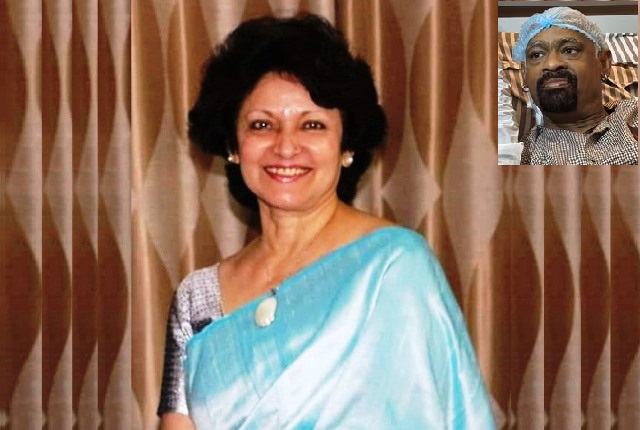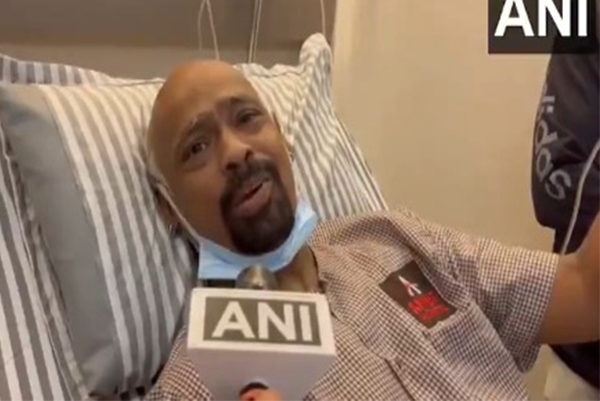Dr Poonam Devdutt, a consultant psychologist and organizational trainer, says life is full of uncertainties, so keep your feet firmly on ground. Her views
Not long ago, netizens were pained to see videos of former cricketer Vinod Kambli in straitened circumstances, looking down and out and physically unwell. Sadly, such images are not new. Down the years we have repeatedly heard stories of once famous sportspersons, singers, actors and others who in post-success years were beset by anonymity, poverty and ill health, at times caused by substance abuse. There is a long list of celebs who in their last days lived in dire poverty, not having even the wherewithal to pay hospital bills
The question arises: how is it that some celebrities come down in the world and cut a sorry figure in the advanced years of their lives? They once rode the wave of fame, earned everything from money to public adulation, and yet in the space of a few years they lost all and ended up as pitiable figures.
An analysis of these case histories throws up multiple factors: social, financial, and, above all, psychological. Prominent among these are lack of self-discipline which makes them vulnerable to distractions and temptations, poor financial planning, taking success for granted, a feeling of ‘I am invincible’, an illusion that ‘things will always stay this way’ and a singular lack of psychological resilience due to which they are unable to reinvent themselves according to changed circumstances.
The pursuit of success is widespread. The ability to cope with extraordinary success is, unfortunately, rare. Success, especially if it comes early, or easily, or in large measure, is notoriously difficult to handle. This is seen particularly in the sports and entertainment industries. Actors and sportspersons may become overnight stars with the success of a movie or match.
ALSO READ: ‘Talent In Cricket May Go Waste, If Discipline Is Missing’
All of a sudden, they may be deluged with offers, the fan following burgeons, the media can’t have enough of them, and the money pours in effortlessly. The golden dream has come true! The world is my oyster, they feel. ‘You are the best’ says the media, the fans and the newly acquired hangers on and they believe it! There are temptations galore – wanton expenditure, a seven-star lifestyle. Promiscuity and substance abuse are never far away. Wealth, fame and public adulation are a heady cocktail. Few are able to keep their balance.
The winning spree or wave of box office success may last for a time – long or short as the case may be. Eventually the tide turns. Age catches up, audience tastes change, the flood of adoration dries up, media is no longer interested, fans find other idols to worship. Worst of all, the money stops rolling in. What follows is often tragic – financial ruin, social isolation, betrayals, and, horror of horrors – anonymity! Physical problems may crop up due to age, alcoholism, drug abuse and lack of discipline in lifestyle.
What is the solution?
It is important to realize that in this life full of uncertainties, change is the only constant. Fame is fleeting. Life is cyclical. As the philosopher said – the wheel of fortune turns – those that were up go down and those that were down go up!
Celebrities who continue to live well even after fading from public memory have realized the above truth and taken necessary steps to deal with changed circumstances.
Keeping one’s head while riding the wave of success, is the key. It is good to fly high as long as the feet are planted firmly on mother earth. A celebrity surrounded by sycophants and faced with alluring distractions may think I can do no wrong. But the law of Karma spares no one. Decisions made and actions taken will have their inevitable consequences – good, bad or ugly.
Substance abuse has been the undoing of countless uniquely talented celebrities. Traditional injunctions against use of psychotropic substances hold true even today, contemporary permissiveness notwithstanding.
Financial planning and sound investments are essential to ensure life long economic stability. Knowing that the shelf life of popular fame is limited it makes sense to develop financial acumen or failing that, to take professional guidance.
As a safeguard for a productive and satisfying future many celebrities invest in a second line of business or alternative occupation. This ensures continued productivity, creativity and monetary stability.
A vital ingredient for a stable life is psychological balance and emotional resilience. Difficult though it may be, it is nevertheless important to be realistic, to remain connected to one’s roots and family, and to have a pragmatic approach to life. Rather than allowing success to go to one’s head, as they say, one can use success and fame as a stepping stone to a secure future. This is where planning comes in. While enjoying present success it is wise to plan for the future and keep alternative options open.
Psychological resilience enables us to reinvent ourselves in accordance with changed circumstances. If one door closes it makes sense to explore other avenues rather than lapsing into paralyzing self-pity.
No doubt, success is good. It is heady. The key is to not get intoxicated. As the army teaches us – always have a Plan B.
Savour the best but be prepared for the worst!
(The narrator is Dean, Student Affairs, and Director at Centre for Psychology and Human Behaviour, Shobhit Institute of Engineering and Technology, Meerut)
As told to Deepa Gupta



